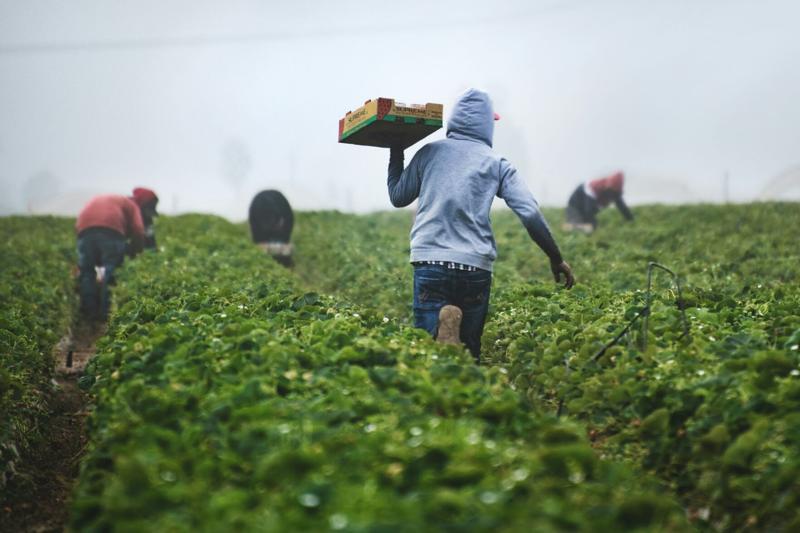As farmers grapple with the impact of mass deportations, federal lawmakers proposed a bill on Wednesday to reform the H-2A visa program for those seeking a legal agricultural workforce.
Congress established the visa program in 1952 to temporarily allow foreign farmworkers to work in the United States. According to the U.S. Department of Agriculture, 42% of hired farmworkers had no authorization to work in the country from 2020 to 2022, down from 55% from 1999 to 2001.
The U.S. Government Accountability Office asked federal agencies to improve oversight of the H-2A program last year. From 2018 to 2023, the number of approved jobs and visas increased by over 50%, as 84% of investigations into employers found violations affecting 66,819 workers.
“Reintroducing the Farm Workforce Modernization Act sends a clear message to farmers that we are working hard to find solutions that ease the burdens brought on by the current state of the H-2A program,” U.S. Rep Dan Newhouse, R, Wash., wrote a news release on Wednesday.
Newhouse proposed the bill alongside U.S. Rep. Zoe Lofgren, D-Calif., after she attempted to push it through in 2019, 2021 and 2023. The House of Representatives passed it twice, but the Senate never did. If approved this time, it could create a legal pathway to residency for farmworkers.
The bill allows undocumented individuals who have worked at least 180 days over the last two years to apply for a certified agricultural worker status. If approved, they could stay for about five years before renewing their status, with spouses and children also eligible for dependent status.
If a worker has 10 years of agricultural experience before Congress passes the bill, they would qualify for a green card after four more years under a certified worker status. Those with less than 10 years of experience must complete another eight years before receiving a permanent status.
“It is well-past time we get this bipartisan legislation twice passed by the House of Representatives to the President’s desk,” Lofgren wrote in the release.
The bill also responds to the GAO’s concerns around the H-2A program, particularly the lack of an electronic processing system for applications. Employers currently have to mail all those documents, but the proposal would streamline the process through an electronic filing system.
Save Family Farming, an advocacy group out of Washington state released a statement in February highlighting fears President Donald Trump’s deportation policies had created.
“It is time for leaders on all sides to recognize that farmworkers are not political pawns — they and their families are essential members of our communities,” according to the statement. “We call on federal leaders to immediately pursue real solutions to fix America’s broken immigration system, not performative policies that intimidate the very people who put food on our tables.”
The United Farm Workers of America applauded the bipartisan compromise on Wednesday as the Farm Workforce Modernization Act heads back to the House and potentially the Senate.
“No one should have to go to work scared of not coming home to their families,” UFW President Teresa Romero wrote in a statement. “The workers who feed America have earned the right to stay in America as Americans. This bipartisan, common-sense legislation will create an opportunity for them to do so.”






